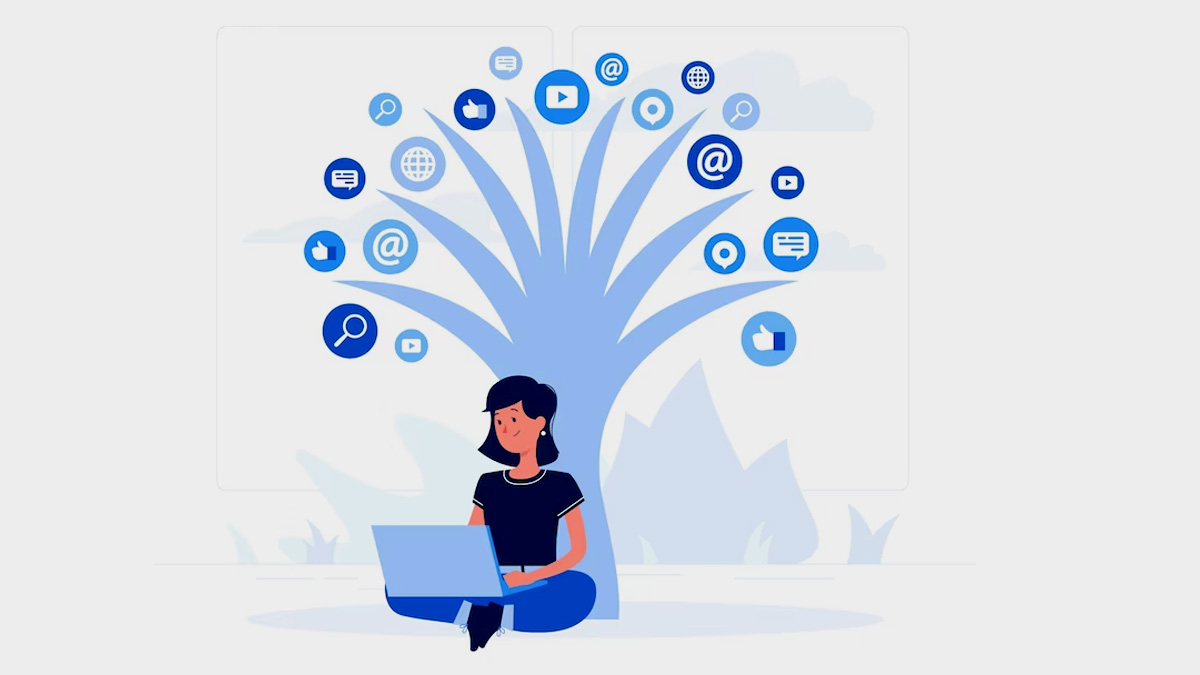
In recent years, social media has played a pivotal role in transforming the landscape of mental health awareness and support. With its ability to reach millions of people instantly, it has become a catalyst for change, empowering individuals and communities to address mental health issues head-on. To know how social media has revolutionised mental health awareness and support, we spoke to Dr Neerja Aggarwal, Rehabilitation Psychologist - Emoneeds. She has also worked as a Resource Person under the Sarva Shiksha Abhiyan, training doctors, Auxiliary Nurses and Midwives (ANMs), and Anganwadi workers in the early identification of developmental disabilities.
Table of Content:-
Breaking Down Long-Standing Stigmas
One of the most significant contributions of social media to mental health is its role in breaking down long-standing stigmas. "People from all walks of life have shared their personal stories openly and honestly, revealing their struggles and triumphs," said Dr Aggarwal. These narratives have humanised mental health challenges, fostering empathy and understanding among individuals who may have previously been unaware or misinformed. By sharing their experiences, individuals on social media have shown that mental health is a universal concern that affects people of all ages, backgrounds, and cultures.

According to JMIR Pediatrics and Parenting, participants in social media platforms also found another advantage in accessing feel-good and motivational content, which had a positive impact on their mental well-being. This content introduced them to valuable resources and improved their awareness of personal mental health. Specifically, through exposure to happy posts and motivational content, participants reported experiencing heightened positive emotions, increased hope, and a greater sense of positivity.
Also Read: #MentalHealthMatters: What Is Obsessive Compulsive Disorder, Explained By Psychologist
A Platform for Organising and Mobilising Support
The power of social media extends beyond personal stories. It has become a powerful platform for organising and mobilising support for mental health causes. "Campaigns and movements dedicated to mental health have gone viral, reaching millions of people around the globe. These campaigns have successfully raised awareness, fostered dialogue, and even influenced policy changes," said Dr Aggarwal. Social media has given a voice to marginalised communities, enabling them to demand better access to mental health services and resources.
"Hashtags have become symbols of solidarity and hope in the realm of mental health. They have created virtual communities where individuals can find support, share resources, and connect with others who are going through similar struggles," said the doctor. These communities transcend geographical boundaries, allowing people to feel less alone in their journey towards mental well-being. Social media platforms have become safe spaces where individuals can express themselves without fear of judgment, find comfort in knowing that others understand their experiences, and access valuable support networks.
Facilitated Innovative Solutions for Mental Healthcare
"Moreover, social media has facilitated the development of innovative solutions for mental healthcare. Online platforms connect individuals with therapists, counsellors, and mental health professionals, making mental health support more accessible than ever before," said Dr Aggarwal. Through virtual consultations and therapy sessions, people can seek help without the barriers of physical distance or scheduling conflicts.

"Additionally, social media has become a hub for sharing educational resources, self-help tools, and coping strategies. From mindfulness exercises to stress management techniques, these resources empower individuals to take an active role in their mental well-being," said the doctor.
Also Read: #MentalHealthMatters: What Is Talk Therapy And How Does It Benefit You?
Downsides of Social Media
However, it is crucial to recognise that social media also has its downsides. The curated nature of social media feeds can contribute to unrealistic comparisons and feelings of inadequacy. The pressure to present a perfect life can worsen existing mental health issues or even lead to the development of new ones. Additionally, the spread of misinformation and harmful content on social media platforms poses risks to vulnerable individuals seeking mental health support. Therefore, responsible use of social media is essential, both for individuals and the platforms themselves.
Conclusion
Social media has revolutionised the landscape of mental health, offering a multitude of benefits for individuals and communities worldwide. From shattering stigmas to amplifying voices, social media has become a powerful tool for raising awareness, fostering support, and driving positive change. By harnessing its potential responsibly, we can continue to build a world where mental health is prioritised, understood, and embraced.
[Disclaimer: This article is for informational purposes only. Consult your healthcare provider to get a thorough diagnosis and treatment as per your health needs.]
Image Credits: freepik
Also watch this video
How we keep this article up to date:
We work with experts and keep a close eye on the latest in health and wellness. Whenever there is a new research or helpful information, we update our articles with accurate and useful advice.
Current Version
